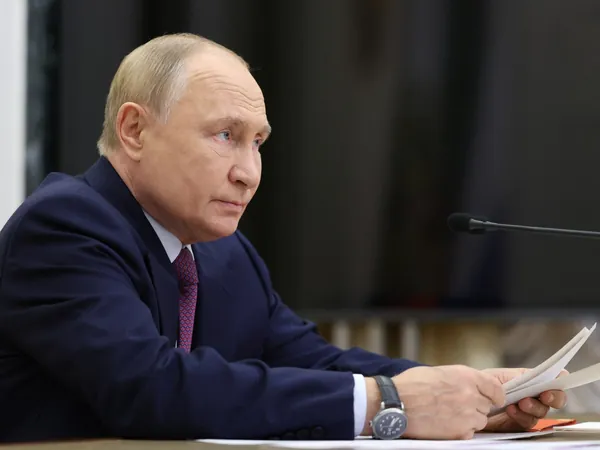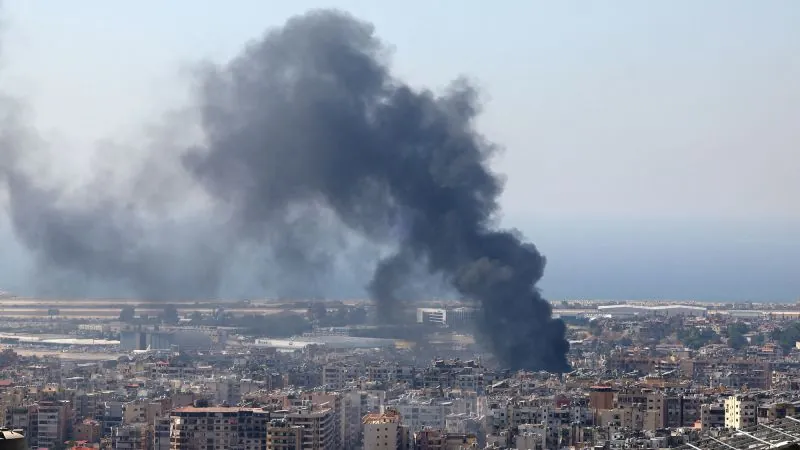
Putin’s Nuclear Warning: A Disturbing Shift in Strategy Amid Ukraine Conflict
2024-09-26
Author: Wei
What Did Putin Say?
Putin outlined that any attack perceived as a “critical threat” to Russia’s sovereignty, even if undertaken by a non-nuclear state, could prompt a nuclear response if it has the support of nuclear-armed countries. The specificity of this warning seems particularly directed at Western nations allied with Ukraine. This is particularly concerning for many analysts and military strategists, as it expands the definition of who might be targeted should nuclear action be deemed necessary. The Russian leader asserted, "If we detect a massive air or space attack on our territory, we will consider it a joint attack against the Russian Federation," clearly implicating Ukraine's Western backers such as the U.S., U.K., and France.
The New Implications for Nuclear Policy
This significant shift in Russia's nuclear doctrine suggests a much broader range of potential targets. Previously, nuclear responses were confined largely to aggressions from nuclear states. Under the previous 2020 nuclear doctrine, Moscow maintained that it would only respond with nuclear options if its existence was threatened—and primarily from nuclear states. Now, the bar has been drastically lowered, implicating even non-nuclear states as potential aggressors if supported by their nuclear allies.
Escalation Concerns
Experts are debating the implications of this policy adjustment. While some warn that this could immediately heighten tensions, others argue that an imminent nuclear escalation remains unlikely. Observers note that, despite the fierce rhetoric, it remains unclear how and when Russia will formalize these threats into operational policy. Furthermore, ongoing discussions involving Ukraine's desire to access long-range missiles from Western allies remain unresolved, and as of now, there is no approval from the U.S. or its allies for such support.
Why This Shift Now?
Putin's announcement comes at a critical juncture, coinciding with Ukraine's ambitious military operations that pushed into Russia's Kursk region, a move that certainly prompted fear in the Kremlin. The Ukrainian forces, buoyed by recent gains, are reportedly aiming to use these advantages in negotiations regarding territorial disputes. Ukrainian President Volodymyr Zelenskyy is currently seeking U.S. support for long-range missile systems, which some analysts believe may have compelled Putin to issue this stern warning.
The Takeaway
Putin’s new stance not only amplifies the stakes for Ukraine but also forces a reconsideration of nuclear safety protocols among NATO and allied nations. As global tensions rise, the ramifications of such a policy shift could reverberate far beyond the borders of Ukraine, affecting international diplomacy and security strategies worldwide. As the situation continues to develop, all eyes will be on Moscow’s next steps and the responses of Ukraine's allies to this unprecedented threat.


 Brasil (PT)
Brasil (PT)
 Canada (EN)
Canada (EN)
 Chile (ES)
Chile (ES)
 España (ES)
España (ES)
 France (FR)
France (FR)
 Hong Kong (EN)
Hong Kong (EN)
 Italia (IT)
Italia (IT)
 日本 (JA)
日本 (JA)
 Magyarország (HU)
Magyarország (HU)
 Norge (NO)
Norge (NO)
 Polska (PL)
Polska (PL)
 Schweiz (DE)
Schweiz (DE)
 Singapore (EN)
Singapore (EN)
 Sverige (SV)
Sverige (SV)
 Suomi (FI)
Suomi (FI)
 Türkiye (TR)
Türkiye (TR)